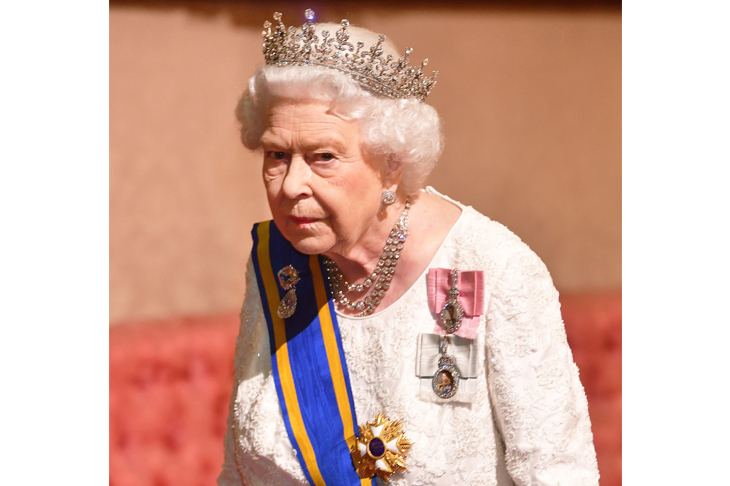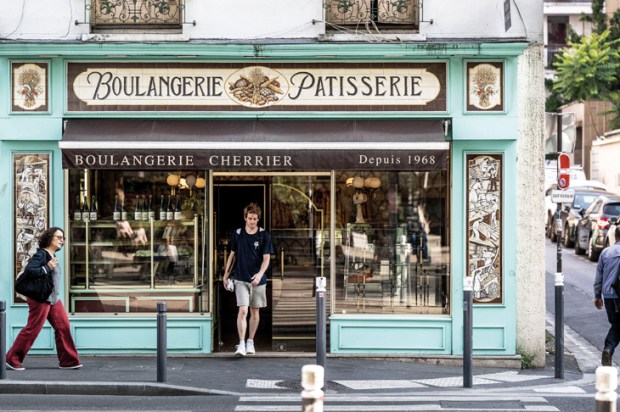The long march through our institutions goes on, and they are falling over like ninepins. The latest victim is the iconic Australian Rules football, as much a cultural and social institution as the opera. For over a century, working class tribes have flocked to cheer on their teams in no-holds-barred shouting matches that have become part of their culture, but not any longer, if those who now control it have their way. The corporates, the do-good bovver boys, the Alan Joyce-like misery guts, and the political correctness commissars have taken over the sport and are strangling the life out of it. They have turned it into the main force of ‘social change’, meaning same-sex marriage, banning conduct they do not like, which is naturally branded as racism and having the slightest difference of opinion with anyone else, which is now bullying. The sport is becoming like a social workers’ group hug. Their latest effort is to install guards with no affinity with the sport who patrol the stadium aisles with their work vests branded ‘Behaviour Awareness Officer’ and intimidate the mob for offences like barracking too loudly, arguing, or abusing the umpire, which has always been the main reason for going to the football. Not even George Orwell could have invented such demeaning titles or imagined such threatening behaviour from the authorities. And yet, there it is. We are living through a unique time when we can actually see institutions and structures being dismantled. The one redeeming feature is that the public, this time, can see what is being done to them and do not like it.
Imperial honours certainly bring out the best in people, and the worst. In the recent round, several trends emerged. The first was the large number of republican activists who had no qualms about accepting honours announced on the Sovereign’s birthday. It was laughably inconsistent, but encouraging, to see that just below the surface of the clap- trap on the republic, there was a secret yearning to be the beneficiary of all the accolades that majesty can bestow. I hope they take the same commitment into the polling booth at the next referendum on the republic and vote against it. I have a special contempt for a second group, those who work in the media and who accepted an honour. The media is one of the few areas of employment where independence from the establishment and all its trappings is vital. You cannot criticise and hold the power structure of society to account if you take the King’s shilling, and these honours are much the same. In any case, even if you wanted to sell yourself, why would you do it by accepting a low grade award like an AM, the one they give to postmistresses and social workers? Finally, what sick alchemists were at work in the darker recesses of Government House, cooking up the black humour of giving Kevin Rudd an award for ‘innovative economic initiatives’? Innovative? Yes, they were innovative. Apprentices electrocuted in the pink batts scheme, school halls without windows and the NBN. We should be so grateful.
I hope the week’s interval since it was published has rammed home the significance of Christopher Akehurst’s piece in these pages on the decay of Fitzroy Street, St Kilda. As surely as Dr Johnson noted milestone events in the life of London, so the Speccie records the ways in which Australia is changing, not always for the better and Christopher has done it proud. Fitzroy Street was one of the most graceful boulevards in the Anglosphere : wide, tree-lined, with an elegant French Embassy, period mansions set back and of course the vista to the seabaths. The mansions are now hidden behind the kebab and souvlaki shops and the pavements are littered with the detritus of the homeless, the sex workers and the drug victims. The most recent intrusion, which Christopher exposed, is the multi-million dollar extravaganza being built at your expense, the Gay Pride Centre. The ludicrous basis of this venture is obvious: a transfer of public money not to the community as a whole but to a section of it for their exclusive use. The gay community used to be fun and had a good cause, the removal of discrimination. I was part of it until I found they did not want the removal of old discriminations but the imposition of new ones. All that is bad enough, but Christopher omitted the other factor explaining the decay of a once splendid part of old Melbourne; the dead hand of government. The street used to be a bohemian playground; now it is politically correct, carefully planned, with phony stony work and the chilling appearance of a space station. Nobody will use it but the hopeless and the homeless. And the smell is terrible.
That history leads me to say that municipal government is now far too big for its boots and is having immense influence on how our civilisation regresses. Melbourne has just suffered another and significant setback in that regard. The Melbourne City Council, believe it or not has a director of international affairs. When some councillors were proposing a motion last week to mourn the sad anniversary of the Tiananmen Square massacre, this exalted personage took it upon himself to invite the Chinese Consulate to object, which of course it did. Naturally, the council folded like a pack of cards. It decided the motion might upset the Chinese government, so it was withdrawn. We can fulminate against the expanding and aggressive power of China, express our solidarity with the good people of Hong Kong against the tyranny of the communist mainland and urge them to stand firm, but we accommodate the communists and give in every time a contentious issue arises. Isn’t it time we forced local government to keep to its knitting? Now, that would be a good idea for real constitutional reform.
Got something to add? Join the discussion and comment below.
Get 10 issues for just $10
Subscribe to The Spectator Australia today for the next 10 magazine issues, plus full online access, for just $10.
You might disagree with half of it, but you’ll enjoy reading all of it. Try your first month for free, then just $2 a week for the remainder of your first year.















Comments
Don't miss out
Join the conversation with other Spectator Australia readers. Subscribe to leave a comment.
SUBSCRIBEAlready a subscriber? Log in